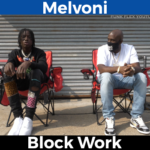The much anticipated ‘Straight Outta Compton’ film will be premiering in theaters across the country today. One of the film’s major plot points focuses on the well known rift between NWA members and their ex-manager, Jerry Heller. In an interview, Heller talks about the group.
The film, which showcases the origins of NWA, takes a lot of time to point out the relationship between African Americans and the police in the Los Angeles area. At one point in the film, Jerry Heller actually confronts the police for targeting NWA and really showed how, outside of business, he seemed to really care about the guys.
In line with caring for the guys, we cannot miss the picture that NWA was undeniably the most important era in Heller’s career as well. He definitely mentored them into the positions they took in the late 80s and 90s and according to Heller, “Of all the things that I’ve done, certainly the most important period of my life was March 3, 1987, to March 26, 1995. that was my period with Eazy-E. That was the period I’m most proud of.” It cannot go unnoticed that Heller was the boost that NWA needed; however, were all of his intentions good?
Heller spoke about the revolution that NWA made–which by the way seems more relevant today than ever before–with their lyrics that preached against police brutality in the hood and even compared them to greats in the revolutionary movement. Heller says about their message, “I think that N.W.A picked up where Bobby Kennedy and Martin Luther King would have gone if they hadn’t been assassinated. I think they did more for race relations in this country than any other entity in history,” and that can definitely be argued, simply for the honesty that was in the lyrics.
With all the great things that were said about NWA and the movements that were made while they were on top and clearly resurfacing now in 2015, Heller did not make too many comments about the negative side that was portrayed about him. Like many managers and executives in the music industry, Heller is said to have taken advantage of the group. Unfortunately, his moves on the financial side of things are what eventually led to the group breaking up as the movie clearly depicts.
Heller, clearly unhappy with the way the film ultimately portrays him, tries to disassociate his being with what was shown in the film. On the film, Heller commented, “The movie has nothing to do with what we did,” and that to me is CRAZY. Aside from the dirt that Heller supposedly did to the group, he was not only shown in a bad light, one would think he would show some praise for the film?




















